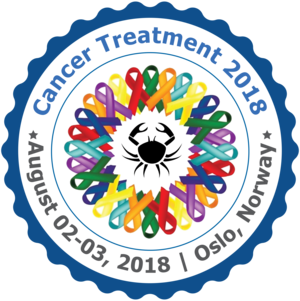
Vineet Talwar
Rajiv Gandhi Cancer Hospital, India
Title: Cancer related fatigue in patients receiving chemotherapy; A single institutional study from Northern India
Biography
Biography: Vineet Talwar
Abstract
Introduction: Fatigue is one of the most disabling phenomenon among patients receiving anti cancer treatment, which has profound effect on their Quality of Life (QOL). Although clinicians across the globe acknowledge the importance of regular assessment of fatigue, however it is seldom being assessed and documented in clinical practice in India and therefore remains unidentified parameter among oncology practice in this country, also very few studies in the literature exist reporting on Cancer-Related Fatigue (CRF) among Indian population.
Objective: The main objective of this study is to find out the prevalence and severity of cancer related fatigue (CRF) and its implication on psychosocial wellbeing among Indian cancer patients.
Methodology: For this study an exploratory design was adopted, using a purposive sampling method, patients (N=206, M: 100 & F: 106) undergoing chemotherapy at Rajiv Gandhi Cancer Hospital and Research Center, Delhi, India; aged 18-83 years were included. The level of fatigue was assessed using 16-item Multidimensional assessment of Fatigue (MAF) scale and a semi structured in-depth interview schedule. These interviews were recorded, transcribed and analyzed.
Results: Irrespective of age, and education, 81% patients experience clinically significant fatigue, of which extreme level of fatigue was reported by 29% patients requiring immediate clinical intervention and 52% patients reported moderate level of fatigue, which is also clinically significant. The level of fatigue was reported more in females than males. Top four psychosocial issues reported were; apprehension of chemotherapy side effects (23.5%), fear of pain during CT (18.5%), Loss of apatite (17.5%) and anxiety during chemo therapy (13.5%), followed by combination of multiple psycho social issues by 11 %, and financial and logistic issues by (11%). Among all the patients, (49.5%) were aware of their diagnosis, of which 8% were either fully aware or partially aware about the prognosis (23%).
Conclusion: Fatigue remains one of the most important clinical parameters among majority of Indian patients receiving chemotherapy, with females reporting it more as compared to their counterparts and is neither assessed by clinicians nor reported by majority of the patients. While almost one fourth of the patients report fear of chemotherapy as their pressing psychosocial concern during CT, others report fear of pain, loss of apatite, manifest anxiety symptoms or report financial and logistic issues during CT. Indian patients should be evaluated for treatable conditions that might contribute in achieving promising clinical outcomes. Exercise, educational material and psychotherapeutic interventions should also be developed to prepare and support them during their treatment phase, which will ultimately lead to better preparedness of side effects and their management, better information of the disease, better coping strategies, reduced symptoms and better quality of life.

